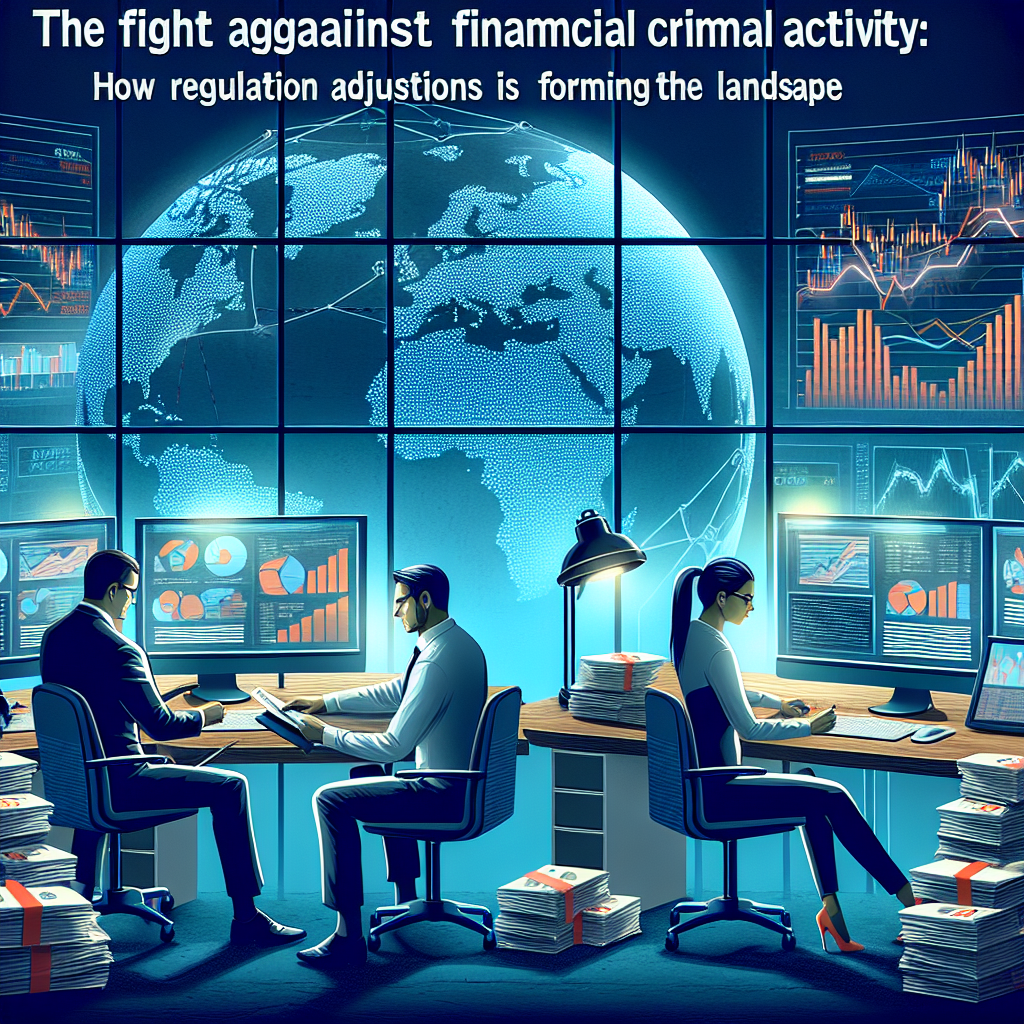Introduction
The landscape of monetary criminal activity prevention is swiftly developing as a result of a wave of regulatory adjustments. Governments and regulatory bodies worldwide are implementing stricter laws targeted at dealing with cash laundering, fraudulence, and other types of financial transgression. This write-up explores how these adjustments shape the techniques used by organizations to guard their monetary systems.
Recognizing Financial Crime
Economic crime includes a range of illicit tasks, including cash laundering, bribery, and fraudulence. The increasing sophistication of criminal companies has actually triggered regulators to impose more stringent compliance steps.
The Function of Regulative Bodies
Regulatory bodies like the Financial Action Task Force (FATF) set worldwide standards to battle cash laundering and terrorist financing. Conformity with these requirements is vital for countries aiming to enhance their economic stability.
Recent Regulatory Adjustments
In response to monetary criminal activity, current regulatory modifications consist of:
- The Anti-Money Laundering (AML) Act of 2020: Strengthens coverage requirements and enhances details sharing in between organizations.
- The European Union’s 6 th Anti-Money Laundering Regulation: Broadens the range of criminal activities taken into consideration in the context of cash laundering.
- FinCEN’s recommended policies: These are aimed at digital currencies, reflecting the expanding pattern of blockchain innovation.
Influence On Financial Institutions
These regulatory changes dramatically influence how banks operate. Organizations should now purchase advanced modern technology and conformity programs to recognize questionable activities and report them appropriately.
Conformity Modern technology
Advanced modern technologies, such as expert system and machine learning, are being incorporated right into conformity workflows. These tools assist institutions examine large volumes of transactions in real-time and identify possibly deceitful activities.
Training and Understanding
Educational campaigns are likewise essential. Employees need to be educated to comprehend financial regulations and acknowledge warnings connected with economic criminal offense. This training cultivates a society of compliance within companies.
Associated Searches
- Ideal practices for financial crime compliance
- Effect of AML regulations on financial institutions
- Future patterns in monetary crime prevention
- Economic crime prevention modern technologies
Often Asked Inquiries (FAQ)
What is economic criminal offense?
Economic criminal activity refers to illegal activities including cash, normally developed to produce illicit profits. Usual examples consist of cash laundering and fraudulence.
Why are governing changes essential?
Regulatory adjustments are necessary for reinforcing the frameworks that shield the financial system from abuse. They ensure that institutions follow high criteria of liability.
Exactly how can companies prepare for regulative adjustments?
Organizations can prepare by investing in technology, training, and creating robust compliance programs.
Interview with a Conformity Expert
Recruiter: Can you discuss the influence of recent governing modifications on compliance approaches?
Compliance Expert: Certainly. Current regulative changes have made organizations reevaluate their conformity techniques. It’s no longer almost satisfying the basic demands yet also concerning integrating sophisticated surveillance systems to proactively spot and address potential economic crimes.
The Future of Financial Crime Prevention
As economic criminal offense continues to progress, regulatory bodies are most likely to adapt their structures additionally. Organizations has to remain cautious and aggressive in their conformity efforts to remain ahead of emerging threats.
Final thought
The fight against monetary criminal activity is an ongoing fight, shaped significantly by regulatory modifications. By purchasing technology, training, and promoting a society of conformity, financial institutions can better safeguard themselves and their stakeholders. As regulations continue to advance, so must the techniques used to preserve the honesty of the monetary system.
References
- Anti-Money Laundering (AML) Act of 2020 (nofollow)
- European Union’s 6 th Anti-Money Laundering Directive (nofollow)
- FinCEN’s Proposed Laws (nofollow)


